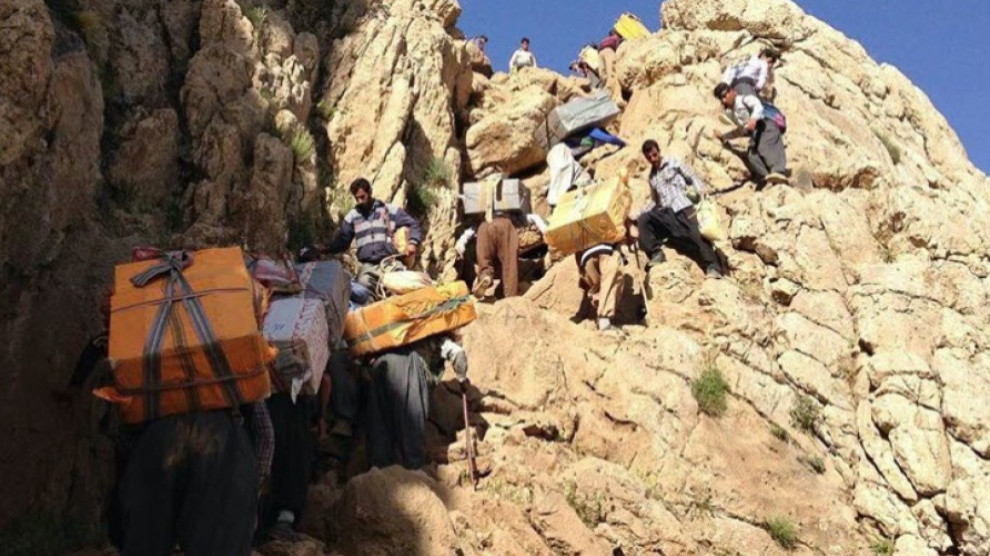Iranian forces kill a kolbar, torture another
Iranian regime forces continue their attacks on kolbars (load carriers for daily wage) and kesibkars (border traders) at the border between Eastern and Southern Kurdistan.
Iranian regime forces continue their attacks on kolbars (load carriers for daily wage) and kesibkars (border traders) at the border between Eastern and Southern Kurdistan.

Granted full impunity, Iranian border guards have once again targeted load carriers at the border.
According to Kolbarnews, Iranian regime forces have attacked kolbars (load carriers for daily wage) in the border region of Henge Zal, near the city of Bane in Sine (Sanandaj) province, Eastern Kurdistan on Thursday.
The attack claimed the life of one of the kolbars, who was identified as Hadi Xizri.
According to Kolbarnews, another kolbar was tortured by Iranian border guards on 11 August. The kolbar, Raza Ebdulahi from the village of Tawaguz near the Salasi town, reportedly sustained a critical injury on the head.
The tragedy of the kolbars
Eastern Kurdistan has descended deeper into poverty through the years due to deliberate policies by the Iranian regime and stands out as one of the poorest regions in Iran. Compared to other regions, the area has seen significantly less investment and development has been deliberately curbed. Agriculture and industry weren’t allowed to develop, and as a result unemployment rose to highest in Iran.
Faced with policies of discrimination, oppression and impoverishment, carrying smuggled goods is not a choice but a must for survival.
Kolbar comes from the Kurdish words, “kol” (back) and “bar” (load). Kolbars make their living carrying loads along the perilous border line. Their loads include cigarettes, mobile phones, cloths, housewares, tea and seldomly alcohol. They walk through dangerous terrain to continue this trade between Southern and Eastern Kurdistan. The goods they bring are sold at high prices in Tehran, but the kolbars who risk their lives for them are paid very modestly.
The intermediaries who take the deliveries and find buyers in cities are called kasibkars.
Kolbars and kasibkars range from 13 to 70 years old. Some only finished elementary school, while others are university graduates. They carry loads, because they can’t find any other employment. In the last 5 years, some 300 kolbars and kasibkars were killed in cold blood. There are no absolute statistics available for the deaths.
RELATED NEWS: